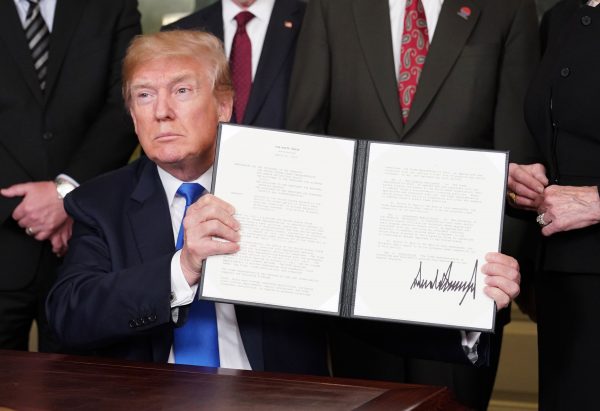
Growing trade tensions driven by the United States decision to raise tariffs on foreign goods may lead to Washington’s isolation by the world’s emerging economies, according to an Indian economist.
BY OWN CORRESPONDENT
India and China, with the support of Russia, could team up under the pressure of US tariffs, according to NR Bhanumurthy, professor at the New Delhi–based National Institute of Public Finance and Policy.
“One can also read something in Prime Minister Narendra Modi’s recent so-called informal visits to China and Russia,” the economist said.
“The recent developments during the G-7 meeting in Canada also suggest that the US appears to be getting isolated and in that case, the trilateral situation between Russia, India and China could be a win-win situation for not only these three countries but also other BRICS countries that are struggling with US tariff hikes.”
The BRICS bloc brings together five countries namely Brazil, Russia, India, China and South Africa
Earlier this year, US President Donald Trump imposed an import tax of 25% on steel and 10% on aluminum from several countries, including Russia, China and India.
All the three opened World Trade Organisations disputes over the move they see as protectionist.
- Chamisa under fire over US$120K donation
- Mavhunga puts DeMbare into Chibuku quarterfinals
- Pension funds bet on Cabora Bassa oilfields
- Councils defy govt fire tender directive
Keep Reading
Moreover, Russia and India have approved mirror tariffs that are set to cover their losses due to the US levies.
Recently, more than a thousand categories of Chinese products were hit by 25% export tariffs. Beijing immediately retaliated with a 25% tariff on 545 US products worth $50 billion. The step triggered another wave of threats from Trump.
Bhanumurthy urged parties to revive the regional trade agreements, which have been neglected for some time.
Apart from BRICS, India is a member of the South Asian Association for Regional Cooperation that includes Afghanistan, Bangladesh, Bhutan, Nepal, the Maldives, Pakistan and Sri Lanka.
“As we have seen in the past that globalisation has led to the gains to all the countries, during the reversal we might have to face exactly the opposite of this,” the professor said.
“One should not be surprised that the current president in the US is clearly looking for large-scale protectionism especially during the run-up to the next elections.”
The economist also said that further protectionist steps against India could have an adverse impact on its growth, as the country’s corporations heavily depend on exports and imports.
“Trade used to contribute nearly 20-25 percent of GDP especially during the high growth period in the mid-2000s,” Bhanumurthy said.
“The service sector, especially the IT sector, would take a big hit. We have seen how some of the software giants promised the US that they would recruit locally for their global operations.”











